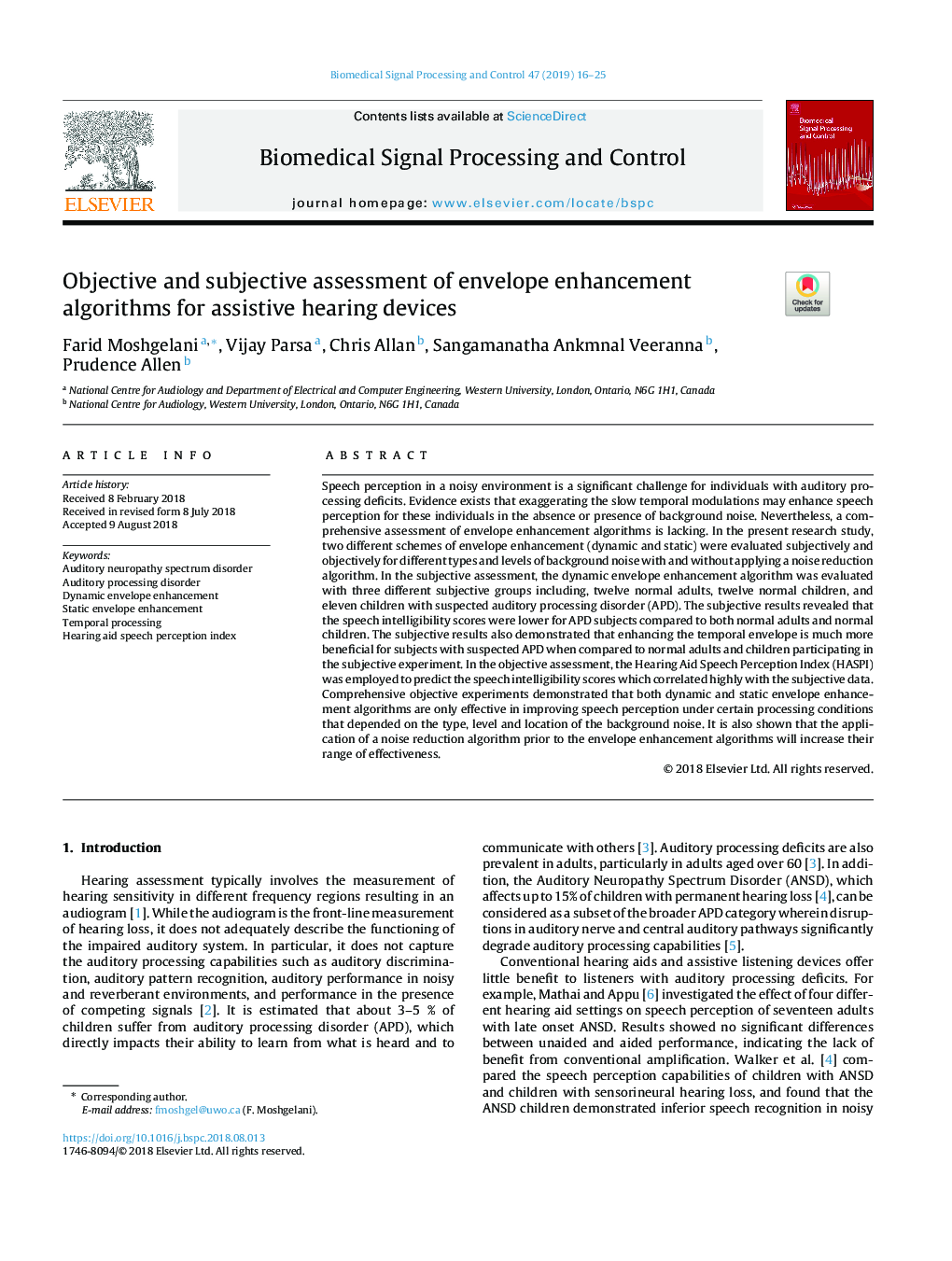| Article ID | Journal | Published Year | Pages | File Type |
|---|---|---|---|---|
| 8941895 | Biomedical Signal Processing and Control | 2019 | 10 Pages |
Abstract
Speech perception in a noisy environment is a significant challenge for individuals with auditory processing deficits. Evidence exists that exaggerating the slow temporal modulations may enhance speech perception for these individuals in the absence or presence of background noise. Nevertheless, a comprehensive assessment of envelope enhancement algorithms is lacking. In the present research study, two different schemes of envelope enhancement (dynamic and static) were evaluated subjectively and objectively for different types and levels of background noise with and without applying a noise reduction algorithm. In the subjective assessment, the dynamic envelope enhancement algorithm was evaluated with three different subjective groups including, twelve normal adults, twelve normal children, and eleven children with suspected auditory processing disorder (APD). The subjective results revealed that the speech intelligibility scores were lower for APD subjects compared to both normal adults and normal children. The subjective results also demonstrated that enhancing the temporal envelope is much more beneficial for subjects with suspected APD when compared to normal adults and children participating in the subjective experiment. In the objective assessment, the Hearing Aid Speech Perception Index (HASPI) was employed to predict the speech intelligibility scores which correlated highly with the subjective data. Comprehensive objective experiments demonstrated that both dynamic and static envelope enhancement algorithms are only effective in improving speech perception under certain processing conditions that depended on the type, level and location of the background noise. It is also shown that the application of a noise reduction algorithm prior to the envelope enhancement algorithms will increase their range of effectiveness.
Related Topics
Physical Sciences and Engineering
Computer Science
Signal Processing
Authors
Farid Moshgelani, Vijay Parsa, Chris Allan, Sangamanatha Ankmnal Veeranna, Prudence Allen,
